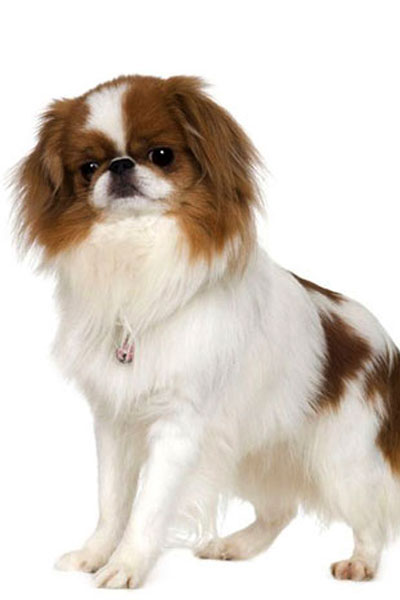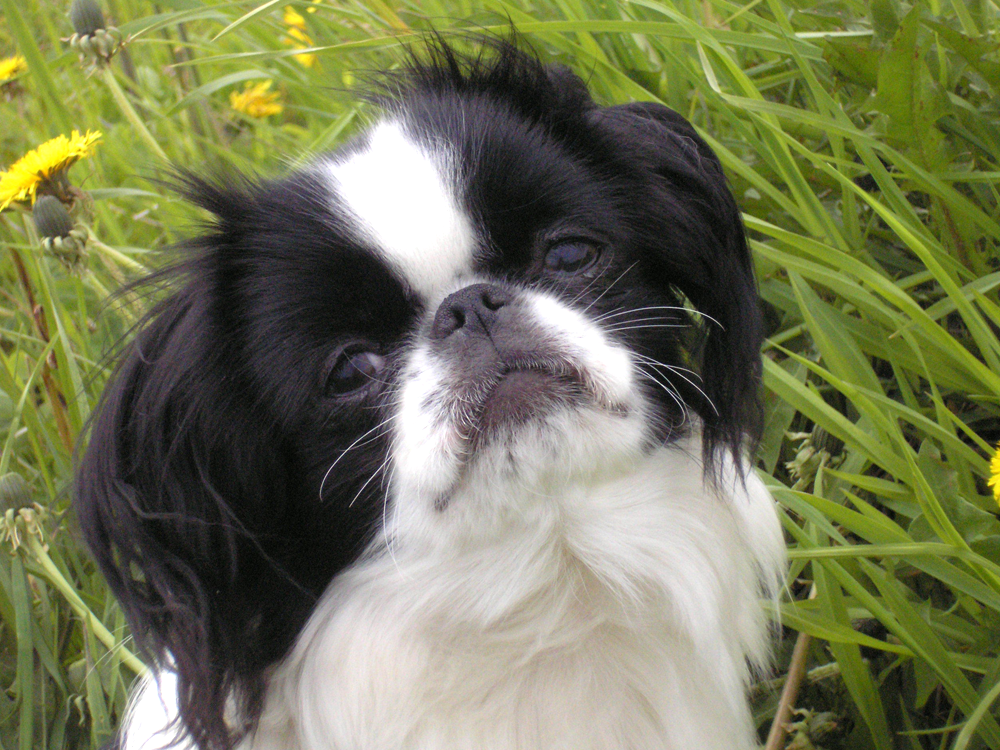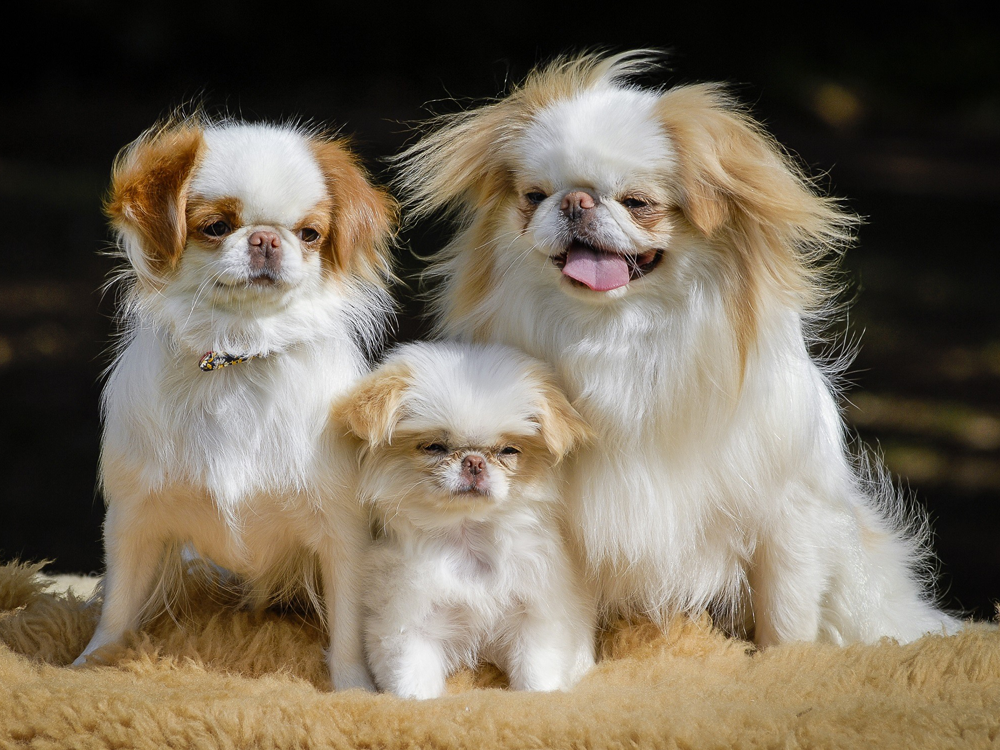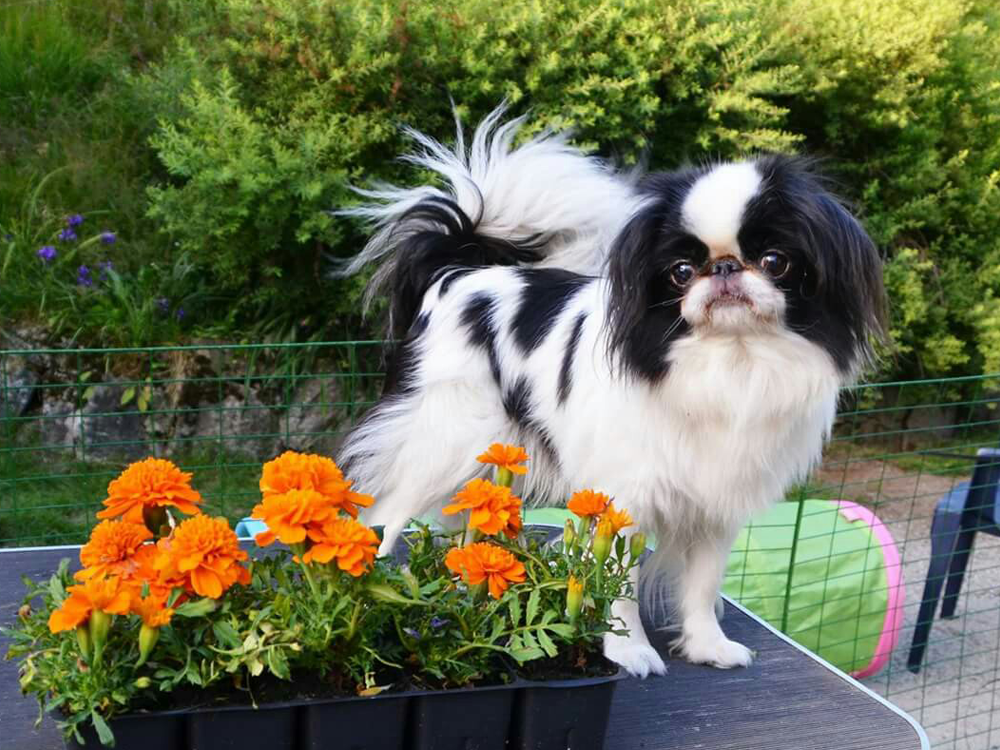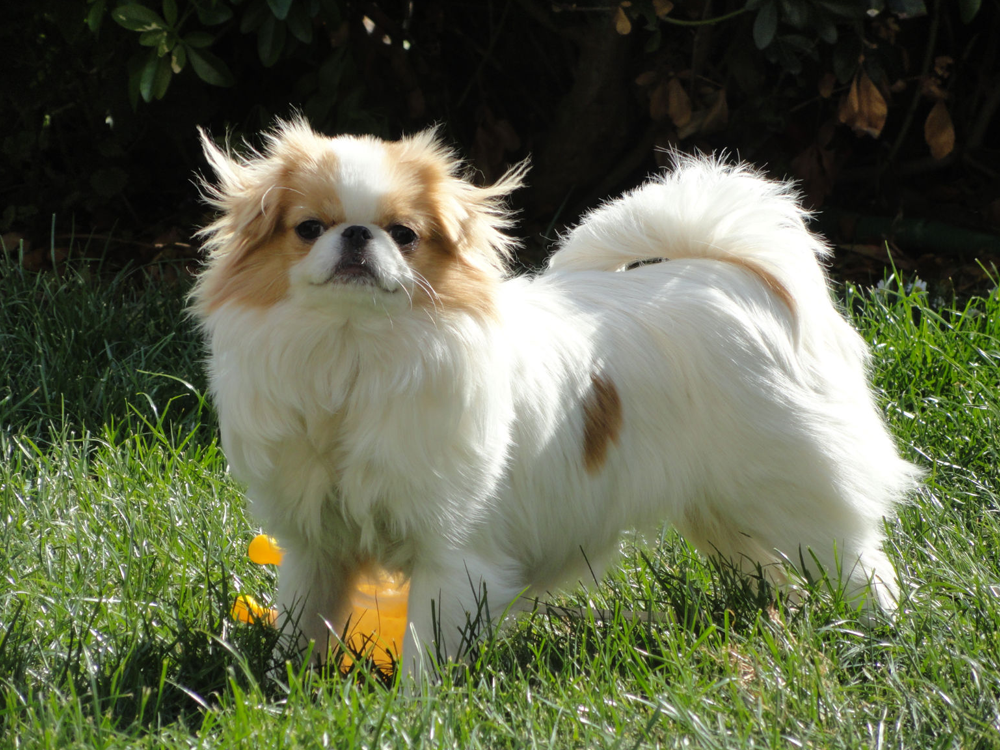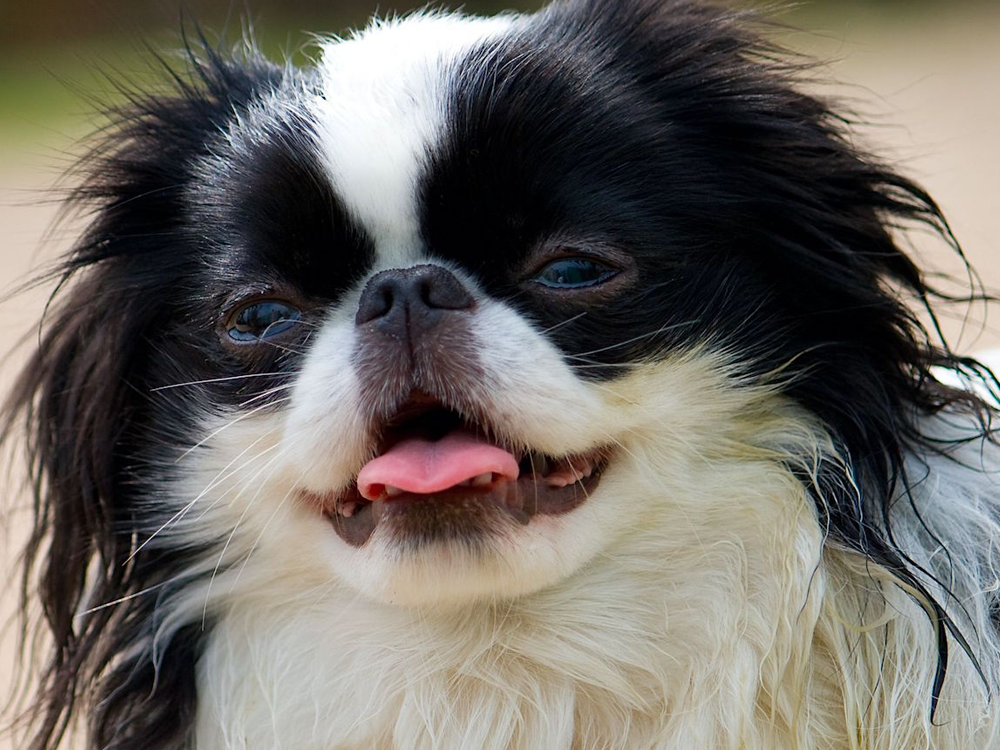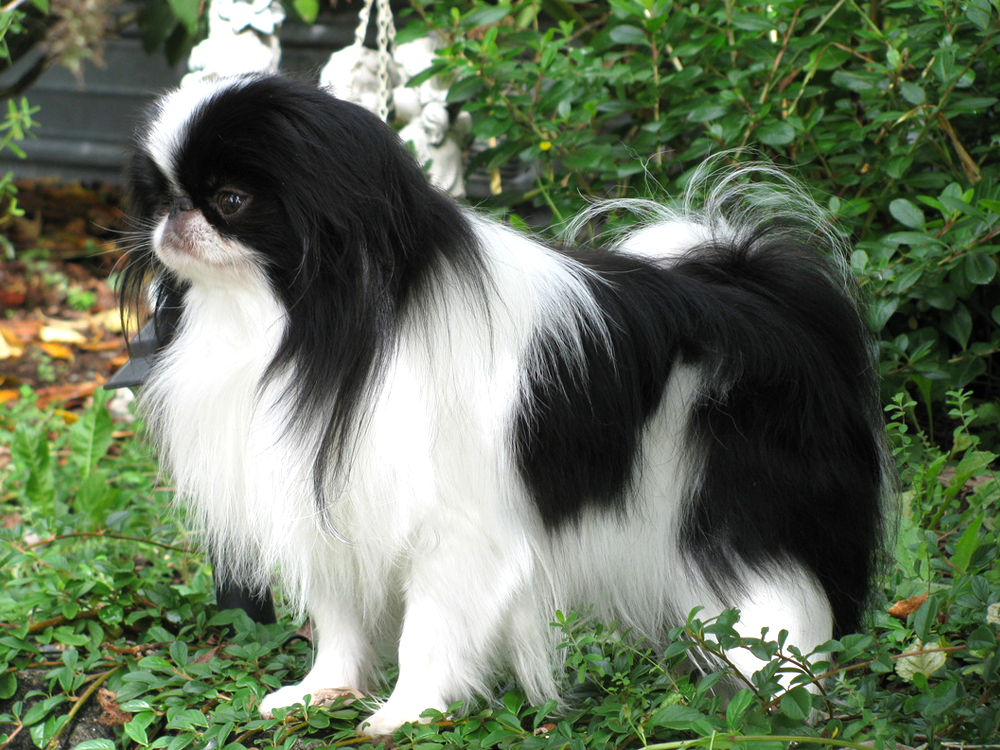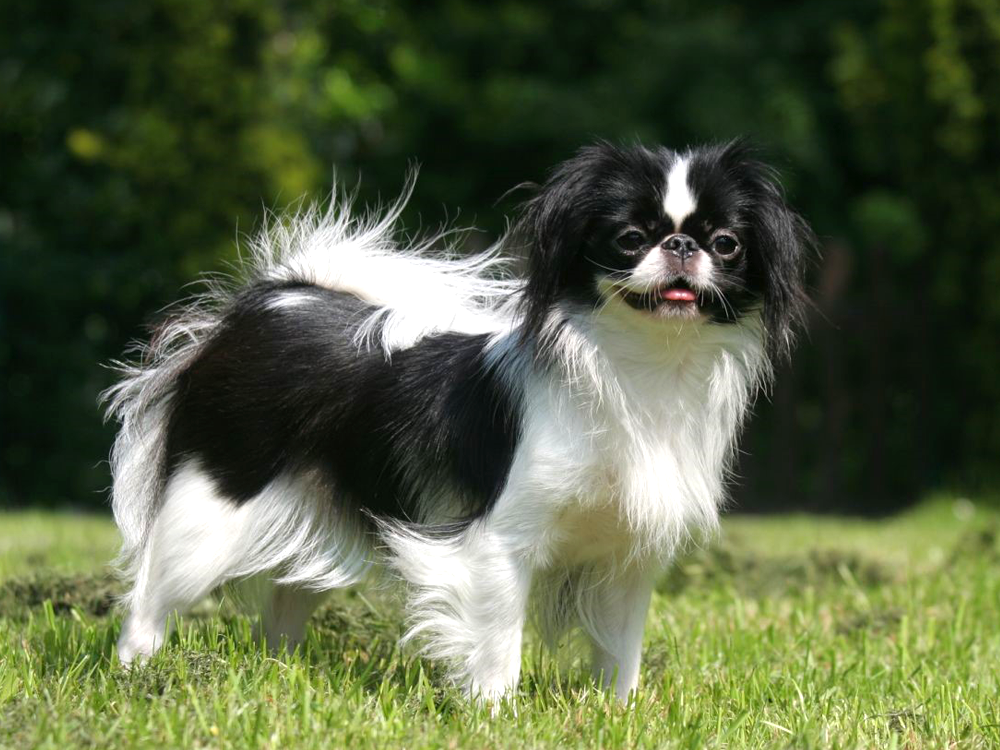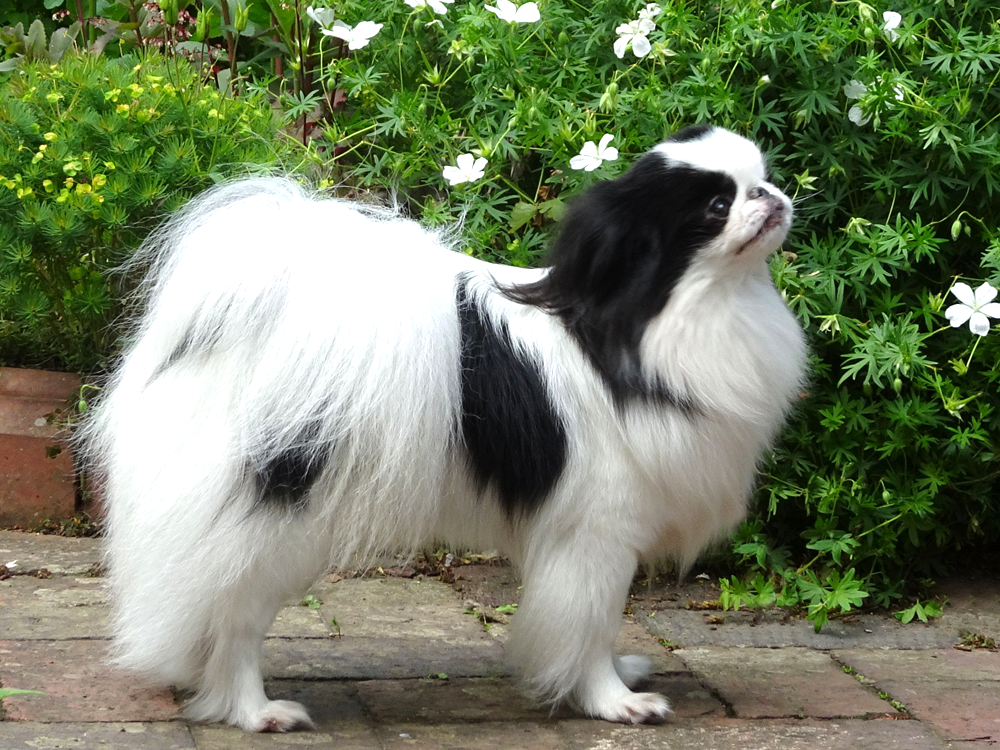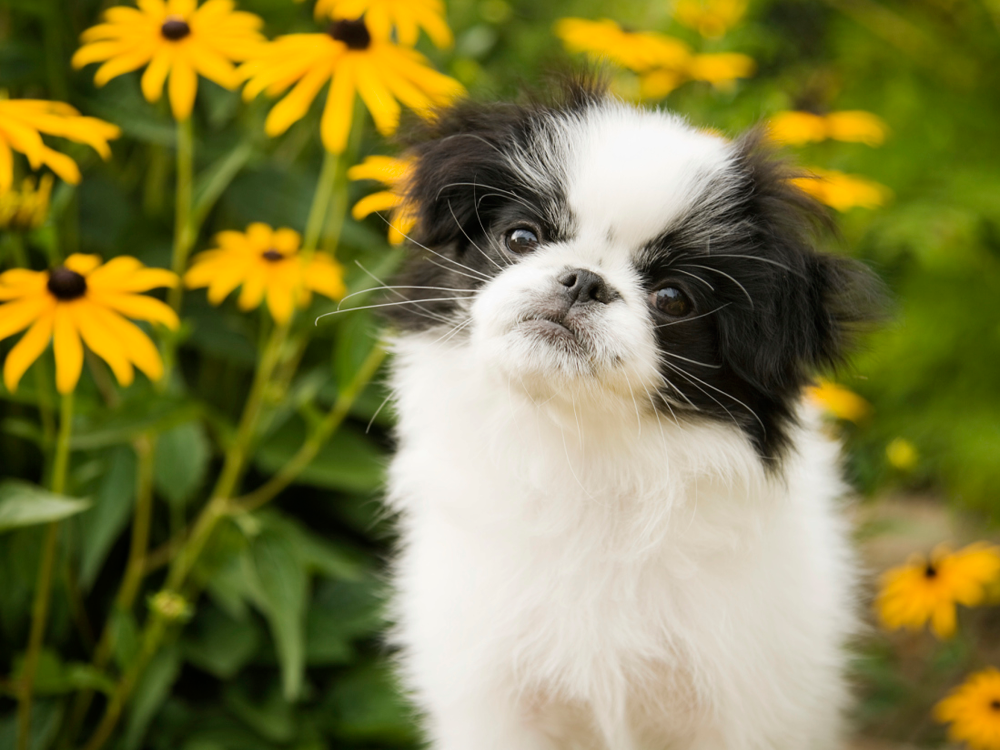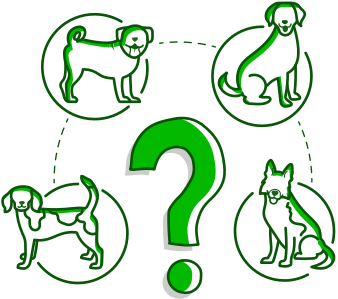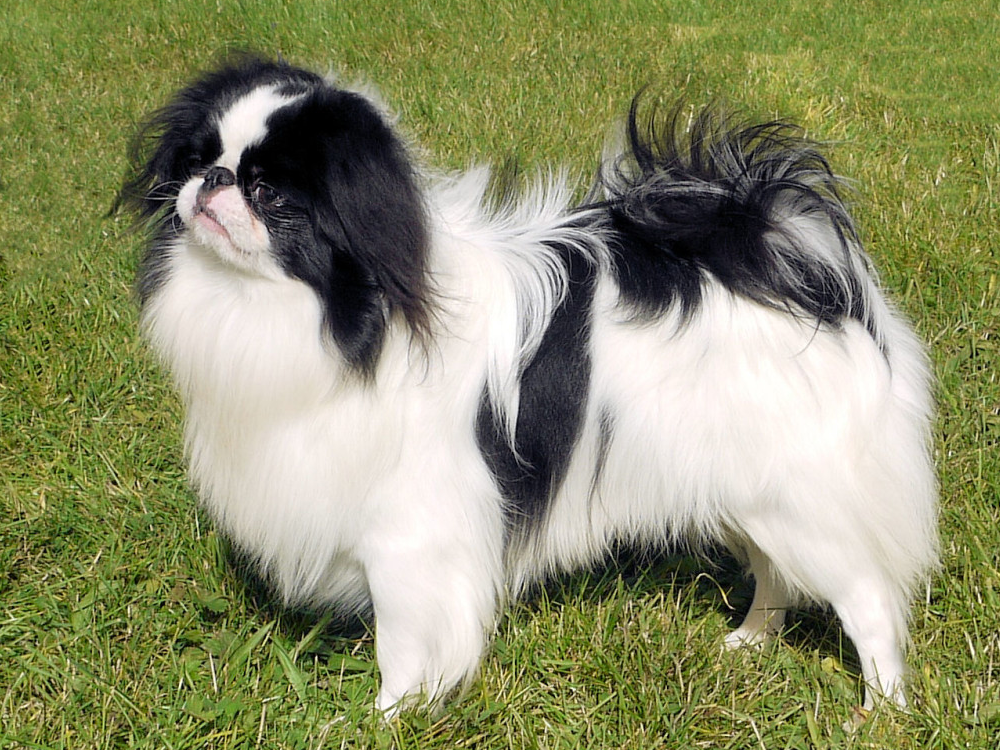
Japanese Chin Breed Pictures
Vital Breed Stats
| Height: | 18 - 28 cm M | 18 - 28 cm F |
| Weight: | 2 - 7 kg M | 2 - 7 kg F |
| Breed Group: | Pastoral Dog Group |
| Life Expectancy: | 10 - 13 years |
| KC Registered: | No |
Breed Characteristics
| Size: |  |
| Grooming: |  |
| Exercise Level: |  |
| Trainability: |  |
| Barking Level: |  |
| Good with Children: |  |
| Good with other pets: |  |
| Affectionate: |  |
| Protective: |  |
| Cost to Keep: |  |
Give a thumbs up if you love the Japanese Chin

0
More About the Breed
History
The Japanese Chin is an ancient breed and despite the name, it is believed to have originated in China, possibly in its imperial court. How the breed reached Japan is debated but one version is that the Empress of China gave the Empress of Japan a Chin puppy. The breed evolved in Japan as the people treated it differently, not as a dog (inu) but as a separate being (chin). The dogs we see today have a different appearance as the original Japanese Chins were crossed with smaller spaniels.
Japan basically kept this breed from the outside world up until 1853 when a man called Commodore Matthew Perry introduced Japan to international trade. The Japanese Chin became a coveted trading commodity and became a favoured breed of the nobility and rich. Up until this day, people want to own Chins because of their appealing look was paired with gentle and loyal natures. It is recognised by all major international breed registries and it is registered with The Kennel Club under the Toy group.
Appearance
The Japanese Chin is a tiny pooch with a broad and short face. It is often described as a breed with a traditional Oriental appearance, boasting of an aristocratic body. It weighs 4 to 9 pounds and stands 18 to 28 centimetres at the withers. It has a large head, round forehead with a well-defined stop, short muzzles, rounded lips, and V-shaped pendant ears. It usually has a black nose with open nostrils, but the nose of light coloured Chins match their coats. Its eyes are moderately big, dark and set wide apart. Most Chins have a level bite but there are some that have slightly undershot jaws.
Making the Japanese Chin more adorable is its long and profuse coat that is silky to the touch. It is straight with no wave or curl, which is also not too flat and typically forms a certain frill around the neck. According to KC standards, the accepted colours are black and white as well as red and white (shades of red include lemon, sable and orange).
Grooming
Temperament
The Japanese Chin is a sweet, loyal and happy dog, getting along not just with its owners but also with everyone, although it can be shy around new people in the beginning. It builds a strong bond with its family and would want to be always part of household activities. It is gentle and patient toward kids of all ages but it is better off to a family with older children. Since it is a tiny dog, it could easily be hurt or dropped by an over excited child, which can be dangerous. Getting along with other pets is not a problem at all.
Chins are sensitive dogs that can pick up its owner’s emotions, meaning if the household is quiet, it will settle down and laze around, and if everyone is lively, it will gladly join in. It is not a frequent barker; instead, it is known to be a talkative breed, creating unique sounds as if chatting with people. This sound temperament is another reason more people want to own this breed and why it is recommended for new owners.
Intelligence
Nutrition
- Senior and less active: up to 200 calories daily
- Typical adults: up to 230 calories daily
- Physically active/working dogs: up to 260 calories daily
Feeding
Health
Exercise
Cost of Ownership
If you are interested to own the adorable Japanese Chin, be prepared for the expenses that come with it. For starters, a well-bred puppy costs £550 and £750. Insuring this tiny pooch will set you back £25 to £50 for basic and lifetime pet insurance coverage, respectively.
For a small breed that consumes less food, monthly costs will be £20 to £30. Veterinary expenses will cost you around £900 a year, which will include routine check-ups, vaccinations and boosters, worming and flea medication, and neutering/spaying. This aspect is indeed expensive but preventive care is absolutely necessary to keep your pet healthy.
Japanese Chin Breed Highlights
- The Japanese Chin is a cute pooch that is affectionate, loyal and happy.
- It is suitable for apartment living because of its small size and low exercise needs.
- This breed can adapt to its owner’s moods.
- Its long straight hair is moderately easy to maintain.
- It is an intelligent dog that can easily learn new things.
